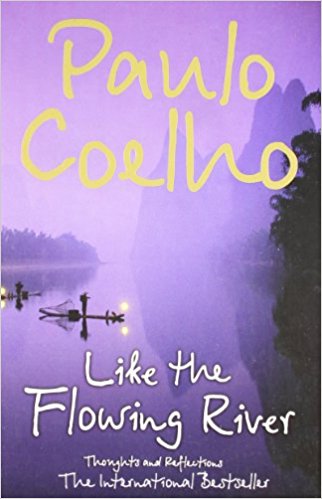I would recommend Paul Coelho’s Like a Flowing River: Thoughts and Reflections if you are looking for (a) a book to carry on a journey, (b) a gift for a student achiever or (c) a mood-elevator. This is a compilation of 102 stories and articles published in newspapers around the world by one of the most widely read authors of recent times. Unlike some of Coelho’s earlier works (Veronika Decides to Die and Eleven Minutes, for example), Like a Flowing River can be read in spurts, without having to worry about losing the thread of Coelho’s philosophy on life. Coelho introduces his intention to ‘set himself on the same path as ordinary people’ in his preface. There is however nothing ordi-nary about Coelho’s inimitable knack of story-telling, which is simple yet simultaneously profound. He in fact uses the preface to make a tongue-in-cheek comment on the kind of writer he would rather not be. He is particularly not fond of the literary academy that celebrates density of style as a laudable quality:
Given his vast culture, a writer can always get work as a literary critic. In that role, he can show his generosity by writing about his friends’ books. Half of any such reviews are made up of quotations from foreign authors and the other half of the analyses of sentences, always using expressions such as ‘the epistemological cut’, or ‘an integrated bi-dimensional vision of life’. Anyone reading the review will say: ‘What a cultivated person’, but he won’t buy the book because he’ll be afraid he might not know how to continue reading when the epistemological cut appears (p. xiii).
The length of Coelho’s articles vary from a paragraph to four pages at the most, and his narrative style ranges from personal anecdotes to fables with didactic intent; and ‘do-good-feel-good’ inspirational stories to profound philoso-poetic reflections on birth, joyousness, forgiveness and death.

